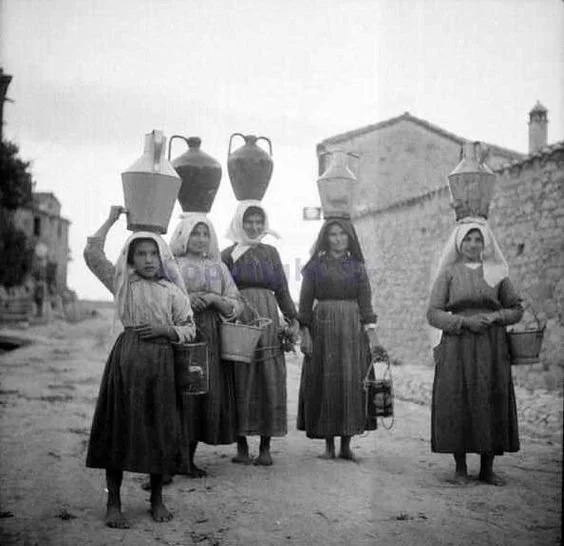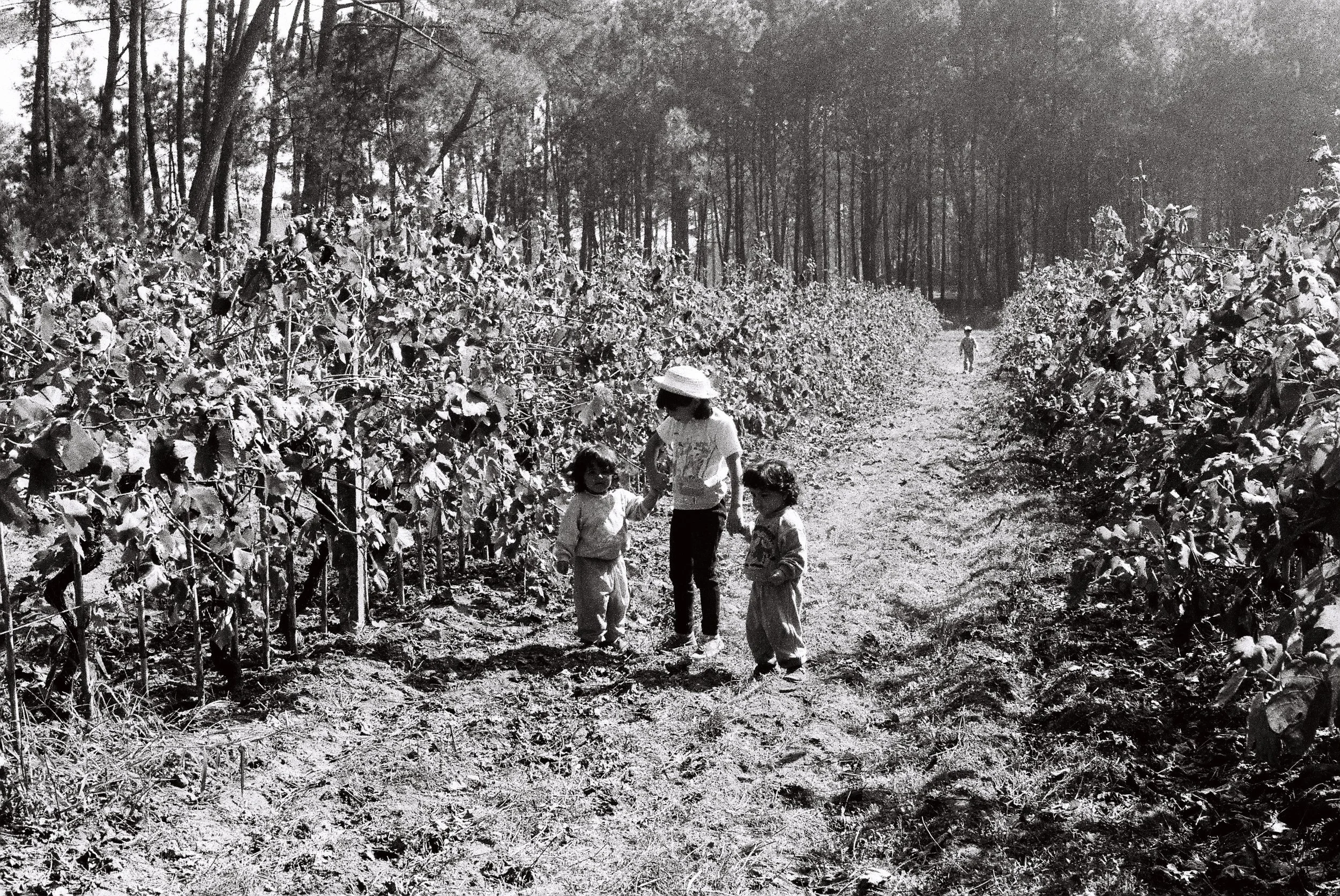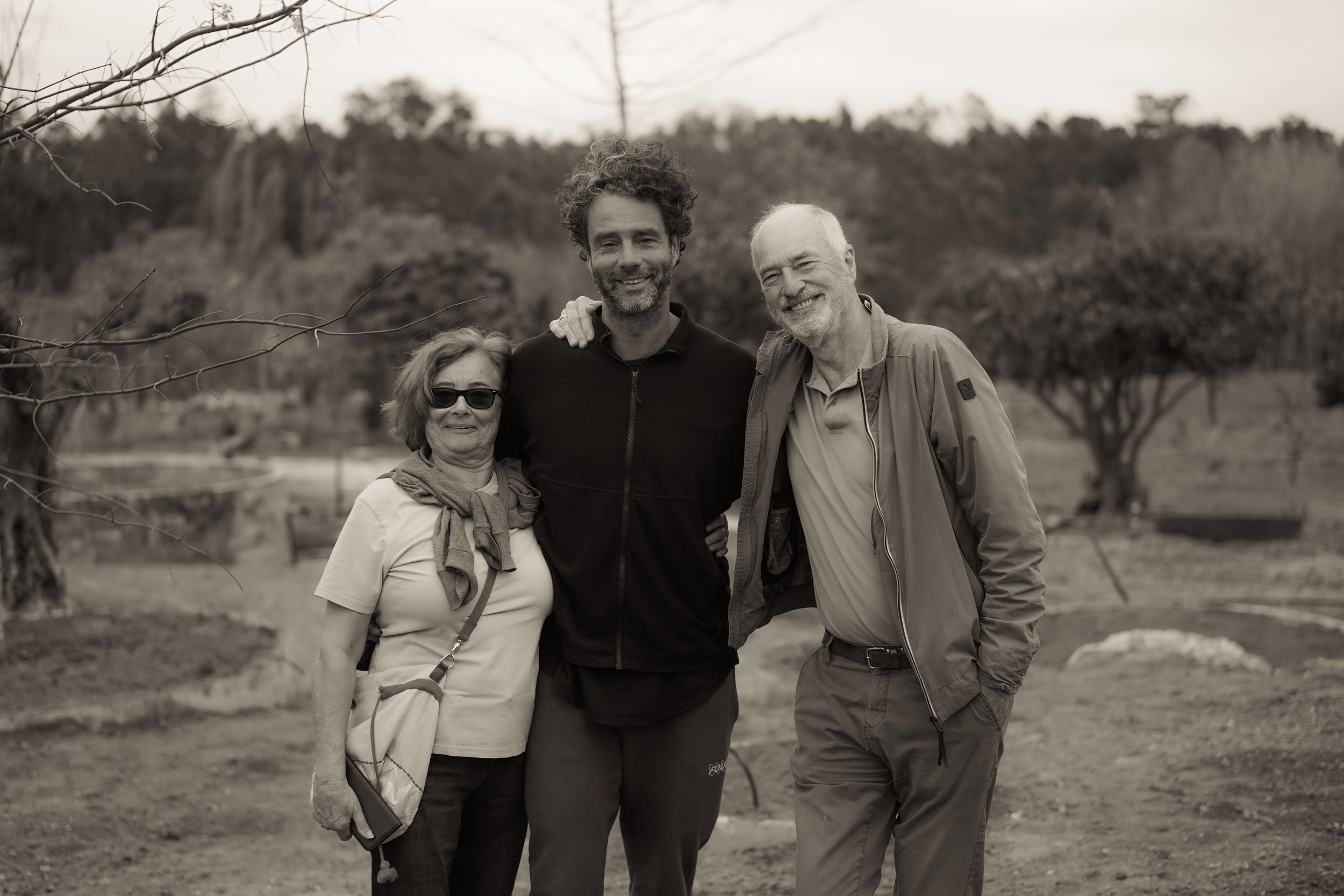FROM THE VILLAGE TO THE QUINTA: MIKE’S STORY
Shaped by the history of a small Portuguese village and a family’s long-standing relationship with the land, this is the story of Quinta Filippa and Mike, its owner. It marks a return to familiar ground and the transformation of 35 hectares into a place guided by connection and purpose.
1960
In the small village of Lage, in central Portugal, life was shaped by the land. Nearly every family farmed. Crops were traded between neighbors, wine was made at home, and each plot of land (often just 1,000 to 3,000 square meters) had its own well. These wells were vital, both for agriculture and for daily life. The village was small, with just three main families, including Mike’s.
Women carried water in clay pots balanced on their heads, walking back from the wells that dotted the valley. Children swam in the river and cooled off in the wells. Life was modest and steady, shaped by work, seasons, and the closeness of community.
But during this time, under the Estado Novo regime, many families began to leave. The dictatorship limited opportunity, and life in rural Portugal became increasingly difficult for the younger generation. When Mike’s mother was just 15 she boarded a bus with her sister and traveled to Germany in search of a better future. There she began working as a sower and a maid, joining many others from the region who were quietly building new lives abroad while carrying the memories of home with them.
1970s
The story of Mike begins in the Netherlands, where he was born to a Portuguese mother and a German Dutch father who, like many at the time, left their homeland in search of new opportunities. Yet his ties to the village of Lage remained strong. Every visit to his grandmother’s home was filled with the sounds of cousins, the scent of home-cooked meals, and the quiet presence of family gathered around long tables. Speaking was not required, just being there was enough. These moments left an imprint that would guide him decades later.
His mother had grown up in Lage, swimming in the river and drawing water from the wells that once sustained the village. His grandmother carried water home in clay pots, following the same paths walked by generations before her. These memories, passed down through stories and visits, became part of the landscape Mike would one day return to.
1980s
At the age of 13 Mike began working at Gräve, a woodshop on PrinsenEiland in Amsterdam. This early experience shaped his way of seeing the world; hands-on, steady, and grounded in patience.
Meanwhile in Lage agriculture returned, but with a different approach. Monoculture took hold, along with chemical-based farming. The land began to suffer. Soil quality declined, wildlife disappeared, and many families moved away. Even so, the memory of a different kind of life lingered.
Every summer Mike’s family would drive down to Portugal, a journey that took three full days before the highways through Spain and Portugal were built. They would spend the entire summer at his grandparents’ house, where his mother’s many siblings gathered with their children. At times dozens of family members slept under one roof, sharing meals, laughter, and the rhythm of country life.
Later when Mike’s parents began building a home on the land gifted by his grandfather, summers became seasons of shared effort. The family built together. Mike remembers his uncle Josef arriving with friends, hauling heavy wheelbarrows of concrete for days to pour the foundations; calling it their summer workout. Another uncle, Henrique, took on the plumbing and water systems, lending his hands and knowledge. These were times of closeness, of work and joy woven together. The land became part of the family’s fabric, carried in memory, built with love.
1990s
As the years passed, more families left the countryside in search of work abroad. Fields were left untended. Wells, once central to village life, were sealed to avoid taxes. Some were eventually buried under layers of time and vegetation.
Mike built a life in Amsterdam but the connection to his home never faded. He visited often, carrying with him a quiet idea that one day, he might return for good.
2010s
In 2011 Mike’s first daughter Filippa was born and the inspiration behind what would one day become Quinta Filippa. Filippa’s name, drawn from the daughter in Inception who symbolizes clarity and home, reflects our hope that Quinta Filippa becomes a place where each guest returns to what matters most: peace, clarity and joy.
2016
The story began with a single piece of land in 2016, once owned by the father of the family’s current bookkeeper. In 2017, Mike and Nikki purchased the house that now stands at the heart of Quinta Filippa, with the intention of creating a place close to family and in nature.
By 2019 Mike and Nikki began renovations. The house had no heating, and they wanted more comfort for longer stays. But once the process began, it expanded quickly. With years of experience in construction, they knew that to do it right meant doing it fully. What started as a dream of a holiday home evolved into a vision for a sanctuary where heritage, wellness, and nature converge.
Over the following years, the project grew piece by piece. Mike and Nikki brought together more than 80 neighboring plots through trust, conversations, and shared respect. Because much of the land had been passed down through generations, the borders were often unclear. Mike met personally with landowners, often sitting at kitchen tables, walking the land together, and gathering neighbors to define boundaries. It was a slow process, deeply human, and shaped by a quiet promise: the land would be treated with dignity.
2020s
The land was dry, overworked, and depleted. Reviving it took years. With help from local farmers, seeds, trees, and natural methods, the soil began to breathe again. Over 10,000 trees have now been planted. Wildlife returned, wild boar, badgers, birds. Wells flow once more.
Mike’s extended family is returning too. It is his own generation, the children of those who once moved away, now finding their way back. Most grew up in Germany, where Mike’s mother and her siblings had moved during the dictatorship in search of a better life. Now, decades later, that generation is finding its way back. Cousins are buying homes nearby, planting orchards, raising chickens, and reconnecting with the land their grandparents and parents once worked.
At Quinta Filippa, the values of Mike’s childhood continue to shape daily life. Meals are shared at long tables, much like those at his grandmother’s house, where gathering together brought comfort and joy. Guests are invited to sit, to connect if they wish, or to enjoy the moment in quiet company. Simply being present is welcomed and enough.
The vision extends far beyond the table. Inspired by the joyful memories of his youth, Mike is gently bringing back the rhythm of rural life. Old wells are being restored as a tribute to the land’s history. Sheep and goats now graze the fields, and the ponds brim with fish and turtles once again. Each gesture reflects a life marked by care, simplicity, and a deep connection to nature.
Health and balance guided Mike’s life to this place. In returning, he discovered a sense of peace, a way of living that feels whole. It is this feeling he now shares with others, inviting them to experience a slower rhythm and a place where well-being is part of everyday life.
Quinta Filippa is also a tribute to heritage. By caring for the land, nurturing its future, and welcoming others with open hands, Mike continues a living legacy, one shaped by love, and a sense of belonging.







